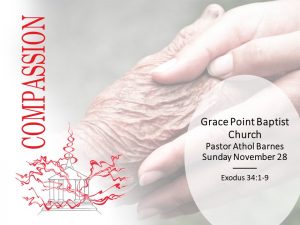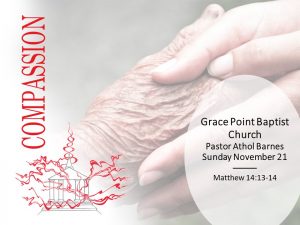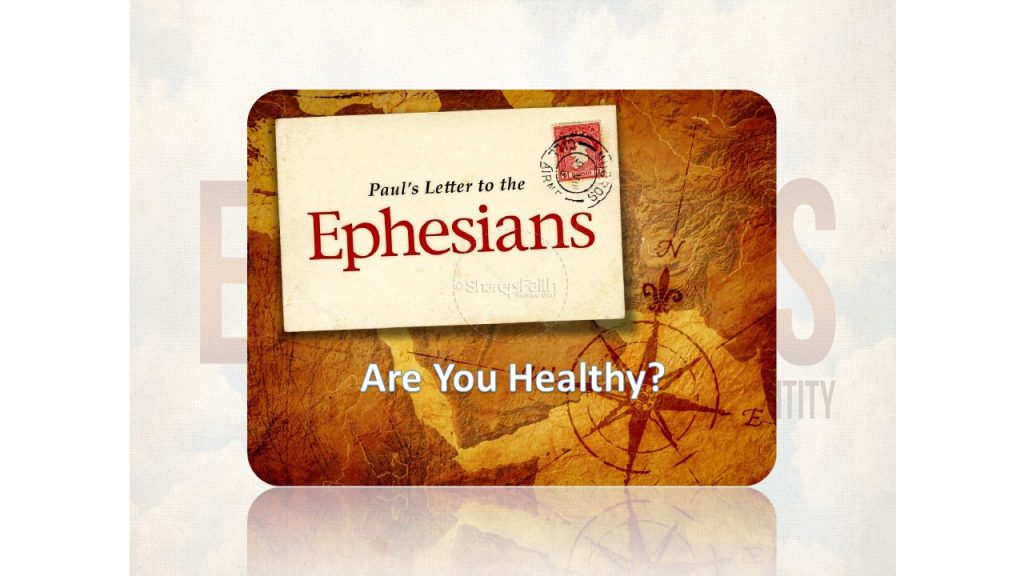
This past week we celebrated Thanksgiving. Since moving to the United States in 2000, Debbie and I have so much to be thankful for. In particular, our church in Atlanta, Roswell Street Baptist church, played a significant role in helping us as immigrants. The church responded as the body of Christ and showed compassion.
Compassion is a pillar of the church but does not stand alone. There needs to be a strong connection between compassion and mission, between compassion and worship and between compassion and the Word. James chapter 2 explains to us that faith without works is dead, rather we show our faith in God through our works of good deeds. The compassion of the church must always bring glory to the name above all names, and only his name. Acts of compassion done for the glory of God are in themselves acts of worship.
Compassion without the foundation of the Word of God, lacks true empathy and the power to change lives. only the word of God, coupled with the revelation of the Holy Spirit, has the power to change lives. Compassion is essential in the church, not because it is what good people do to help one another, but because it is the way the church points people to Jesus.
Jesus displayed compassion for the people around him as he walked the earth. Jesus’ compassion was not simply a good trait that Jesus displayed, it was the very core he is.
If we are not careful, we can easily fall into the trap of seeing Jesus as the compassionate part of the Trinity, and God the Father as the stern and judgmental one who needs to be appeased. Yes, it is true that God is perfectly holy and that we are only able to be in a right relationship with Him because of the blood of Jesus shed on the cross. But that is the righteous holiness of God the Father. What does the Bible teach us about His character and His nature?
We know that the Bible is the revelation of Jesus. I think sometimes that we need to be reminded that the revelation of Jesus is a revelation of God. Jesus is God in the flesh. Jesus said in John 14:9, “…Whoever has seen me has seen the Father.” John’s Gospel begins, “In the beginning was the Word, and the Word was with God, and the Word was God.” John 1:1
One of the passages in the Bible that is the greatest revelation of God the Father, is the encounter the God had with Moses and the Children of Israel on mount Sinai. In Exodus 34, Moses returns to the top of the mountain with new stone tablets after he smashed the previous ones in anger at the nation’s idolatry. In Exodus 34:6-7, God reveals himself in a way that is unlike anything else prior to the incarnation. Exodus 34:6, “The Lord passed before him and proclaimed, “The Lord, the Lord, a God merciful and gracious, slow to anger, and abounding in steadfast love and faithfulness.”
This is not simply God telling Moses some information about Himself. In the previous chapter, Moses courageously asks God to show him His glory, to which God responds by displaying and declaring His goodness. When I think about the glory of God, I always think of his incredible power and majesty. But God reveals that His glory is in His goodness. The glory of God is in his compassion. The first words that God uses to describe himself are, “merciful and gracious…”
This is where we struggle to come to terms with the nature of the holiness of God. To be holy is to be set apart. The Hebrew word used for holy, means to be cut off, or separate from everything else. It means to be in a class of your own, distinct from anything that has ever existed or will ever exist.
Frequently in the Old Testament, we read that God was provoked to anger. The nation of Israel constantly provoked God to anger by their disobedience. God was provoked to anger, but here in Exodus 34, we read that God by nature is merciful and gracious, which is His character and nature. God is naturally compassionate but provoked to anger.
How about us? Depending on who you are, some of us are more prone to anger than others, but I don’t know anyone who struggles to get angry if the right set of circumstances presents themselves.
But how about compassion, love, and mercy? These attributes don’t come naturally to us, in our sinful nature. That is why the writer to the Hebrews says, “And let us consider how to stir up one another to love and good works,” Hebrews 10:24. The writer encourages the readers to stir up, or provoke, love and good deeds in one another. We are sinful by nature, and we need to be provoked to be merciful.
How far we as beings created in the image of God have deviated from our original design because of the fall. When sin entered the world, our very core nature was disrupted and as a result we in turn view God through our own broken lenses. God is compassionate at His core.
The ultimate purpose of compassion is leading people to a saving knowledge of Jesus Christ. True compassion is caring for someone’s eternal destination.
In Isaiah 58:6-8 God reveals that acts of compassion are true fasting, denying ourselves to focus on the will of God. Caring for the hurting, the poor, and the unlovely, with the purpose of showing and speaking the Gospel message to them. Notice the final line in verse 8, “…the glory of the Lord shall be your rear guard.” What is the glory of God? It is his goodness on display. When we display the goodness of God, He is glorified.
The Gospel message is the ultimate display of compassion, John 3:16, “For God so loved…that He gave”. The ultimate purpose of compassion is leading people to a saving knowledge of Jesus Christ. True compassion is caring for someone’s eternal destination.
Our strength and resources can at best provide some temporary relief to someone in need. However, our resources coupled with the power of the name of Jesus, will lead to life transformation and eternal salvation.










